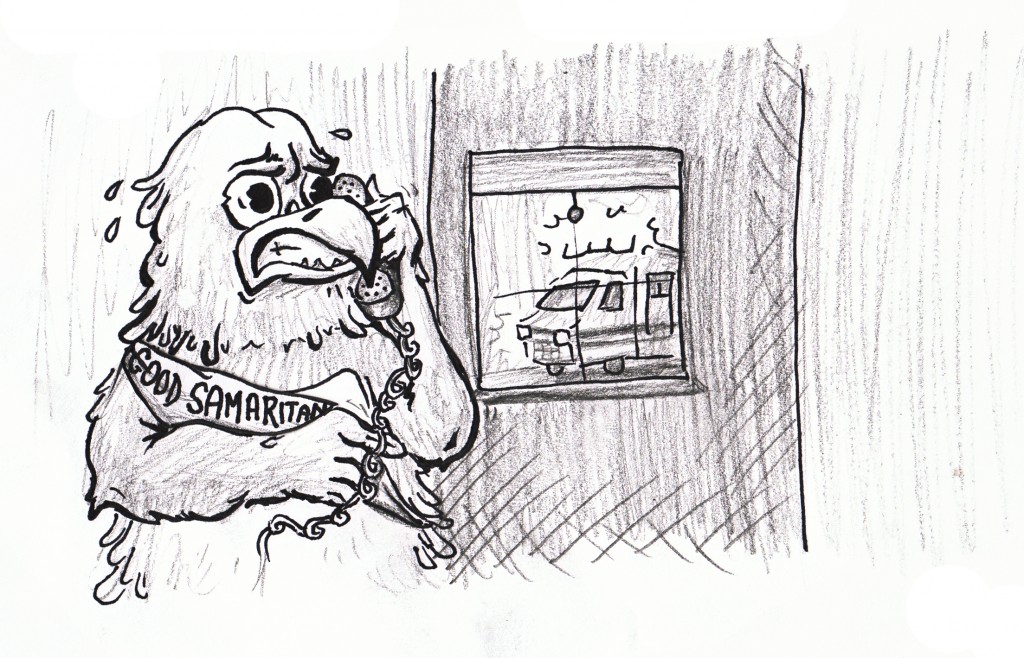
 Recently, Sen. Wendy Cohen met with the president’s cabinet to discuss the implementation of the Good Samaritan Law into SUNY New Paltz’s student handbooks.
Recently, Sen. Wendy Cohen met with the president’s cabinet to discuss the implementation of the Good Samaritan Law into SUNY New Paltz’s student handbooks.
We at The New Paltz Oracle commend Cohen on her efforts and research, and hope the cabinet will make a recommendation to the college council for a change in our student handbook reflecting the newly-recognized law.
New York passed the Good Samaritan Law, which prohibits arrests and persecution for individual possession of drugs, underage drinking and possession of other illegal paraphernalia when someone’s life is in danger. Research shows that overdose is now the number one leading cause of accidental deaths in New York state, according to healthland.time.com. It is responsible for at least 28,000 adult deaths per year.
Research also showed these deaths usually occur when the individual who overdosed is in the presence of at least another person. We feel this is especially relevant for college students, who more often than not believe campus police will be more concerned with punishment than safety.
After the hostage situation in February of this year, we believe now more than ever is the time for this law to be added to our handbook. The policy would have benefitted the students involved, who would have not been hesitant in reporting the incident to the necessary authorities.
The facts of the situation clearly show the policy would have had a positive impact on the situation.
Cohen’s research shows that calls for help don’t happen more than 50 percent of the time, and police involvement is a commonly cited reason for not calling 911.
Cohen said students who currently call for authorities to help friends are subjected to the judiciary process on campus and even have the possibility of a strike being tallied against them in accordance to the school’s “zero tolerance policy.”
Currently, there are over 100 schools using the Good Samaritan policy, including fellow SUNY schools Binghamton and Fredonia. We believe as a university that prides itself on having some of the best of the best in terms of its student body, it is time for us to join the wave of schools using the policy.
Even in less extreme situations, we see fellow students are afraid to ask for help because they are more afraid of the consequences of their actions. We understand students should not be engaging in illegal activities in their residence halls, but we know it is unrealistic to ask for this; college is about experimentation after all. The policy would create a safer and friendlier environment between students, residence life staff and campus police.
Students living on campus need to know their residence hall staffs are primarily concerned with their safety. This policy would be a positive step for students, knowing that their safety is more important than all the consequences a situation may bring. This also holds true with campus police.
The policy allows for more safety and security for the student body. Fear of punishment would also diminish with the policy being put in place.
We hope the cabinet will bring this to the college council and make sure it becomes a rule when the new revisions to the student handbook are made.
